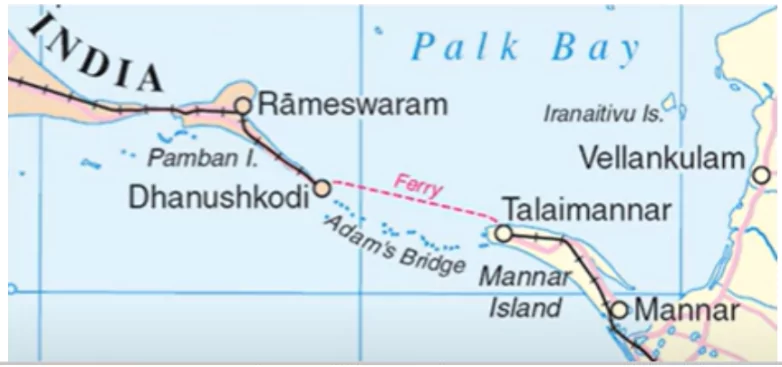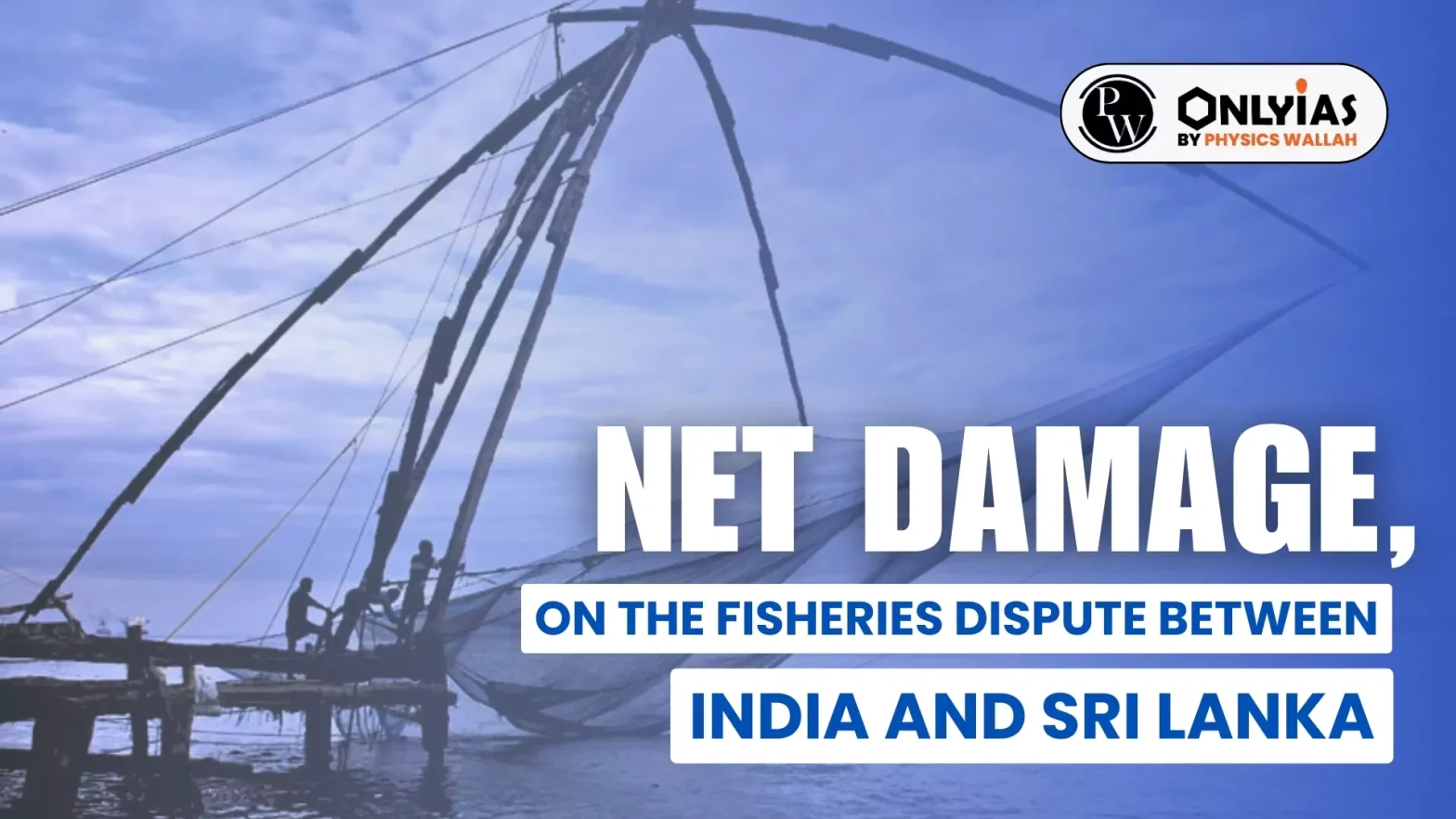The resumption of fishing off India’s eastern coast including the Palk Bay, after the annual 61-day ban on fishing, has led to the death of a sailor from the Sri Lanka Navy.
| Relevancy for Prelims: Palk Bay, Kankesanthurai near Jaffna, 1974 and 1976 bilateral agreements, international maritime boundary line, etc.
Relevancy for Mains: Palk Bay fishing dispute, comprehensive strategy to ensure sustainable fishing practices in the region, etc. |
Fisheries Dispute between India And Sri Lanka
- The Sri Lankan Navy had carried out an operation on June 25 morning to “chase away a cluster of Indian poaching trawlers” in Sri Lankan waters off Kankesanthurai, near Jaffna.
 A trawler-vessel was impounded and 10 fishermen apprehended, of whom eight were from Tamil Nadu and the rest from Andhra Pradesh. There have also been several cases of Indian (Tamil Nadu) fishermen dying too.
A trawler-vessel was impounded and 10 fishermen apprehended, of whom eight were from Tamil Nadu and the rest from Andhra Pradesh. There have also been several cases of Indian (Tamil Nadu) fishermen dying too.- The Tamil Nadu Chief Minister, M.K. Stalin, sought the intervention of the External Affairs Minister, S. Jaishankar, in releasing the vessel and the men.
- In his reply sent to the Chief Minister on Thursday, Mr. Jaishankar said the Indian High Commission had been seeking the early release of 34 fishermen in judicial remand and six others who were serving sentences.
Enroll now for UPSC Online Course
- The resumption of fishing off India’s eastern coast including the Palk Bay, after the annual 61-day ban on fishing, has led to the death of a sailor from the Sri Lanka Navy.
- The Sri Lankan Navy had carried out an operation on June 25 morning to “chase away a cluster of Indian poaching trawlers” in Sri Lankan waters off Kankesanthurai, near Jaffna.
- A trawler-vessel was impounded and 10 fishermen apprehended, of whom eight were from Tamil Nadu and the rest from Andhra Pradesh. There have also been several cases of Indian (Tamil Nadu) fishermen dying too.
- This is an opportunity for the two countries to revive the negotiation process, exclusively to deal with the fisheries dispute, which became aggravated in the wake of the 1974 and 1976 bilateral agreements to demarcate their maritime boundary lines.
- Mr. Stalin has done well to remind Mr. Jaishankar to convene a meeting of the Joint Working Group, last held (virtually) over two years ago.
- The acts of Indian fishermen crossing the international maritime boundary line are clearly illegal; factors relating to protection of livelihood opportunities cannot be delinked from the importance of the preservation of the marine ecosystem.
- A gradual replacement of bottom trawlers being used by the Tamil Nadu fishermen is a must, but the fisherfolk require time to prepare for diversification — deep sea fishing, marine cage farming, seaweed cultivation and processing, and sea ranching.
- The experiences of the deep sea fishing project, being executed by the Union and Tamil Nadu governments, are clear enough to conclude that it is a failure.
- After nearly seven years of implementation, only 61 deep sea fishing vessels have been handed over to beneficiaries, with 19 more under construction.
- It would be thoughtful if the Union government clubs the project with an all-India programme, where the unit cost of a deep sea fishing vessel is ₹40 lakh higher, at least to get a better response even at this stage.
- The unit cost of a deep sea fishing vessel under the Central-State project is ₹80 lakh. New Delhi and Colombo can devise additional schemes to help the Northern Province’s fishermen even more.
- But what is more important is that the two countries, representatives of the fishing community and officials from Tamil Nadu and the Northern Province should meet soon to find a way out of the dispute.
Check Out UPSC CSE Books From PW Store
Conclusion
To resolve the fisheries dispute between India and Sri Lanka must revive negotiations, protect livelihoods, and promote sustainable practices while ensuring cooperation among all stakeholders.
![]() 28 Jun 2024
28 Jun 2024

 A trawler-vessel was impounded and 10 fishermen apprehended, of whom eight were from Tamil Nadu and the rest from Andhra Pradesh. There have also been several cases of Indian (Tamil Nadu) fishermen dying too.
A trawler-vessel was impounded and 10 fishermen apprehended, of whom eight were from Tamil Nadu and the rest from Andhra Pradesh. There have also been several cases of Indian (Tamil Nadu) fishermen dying too.